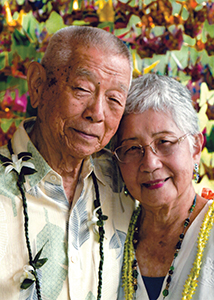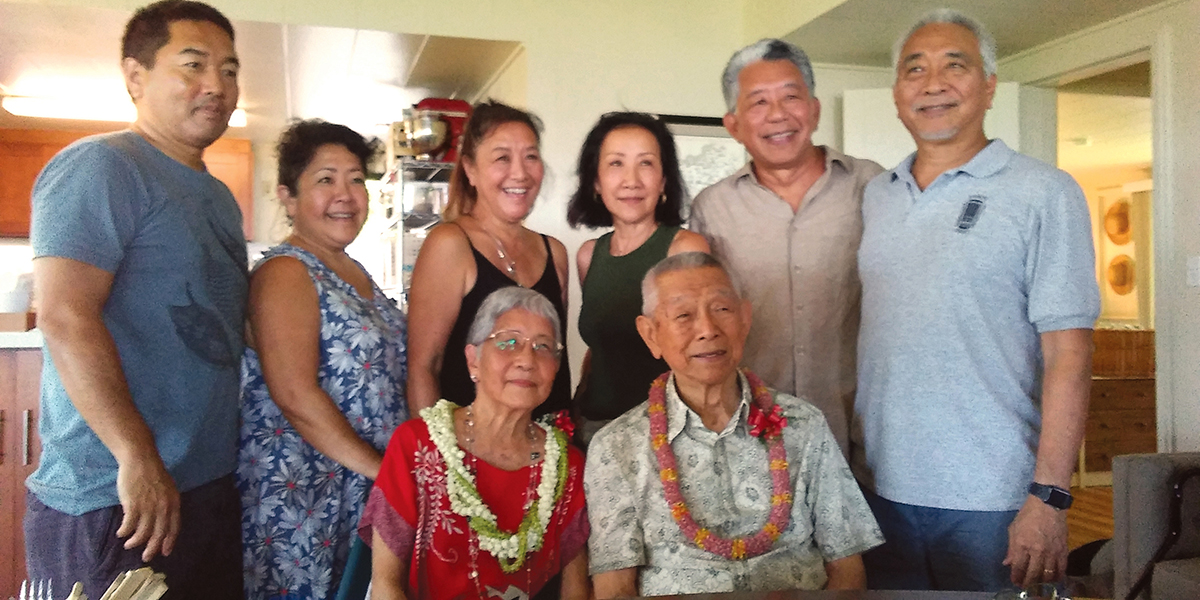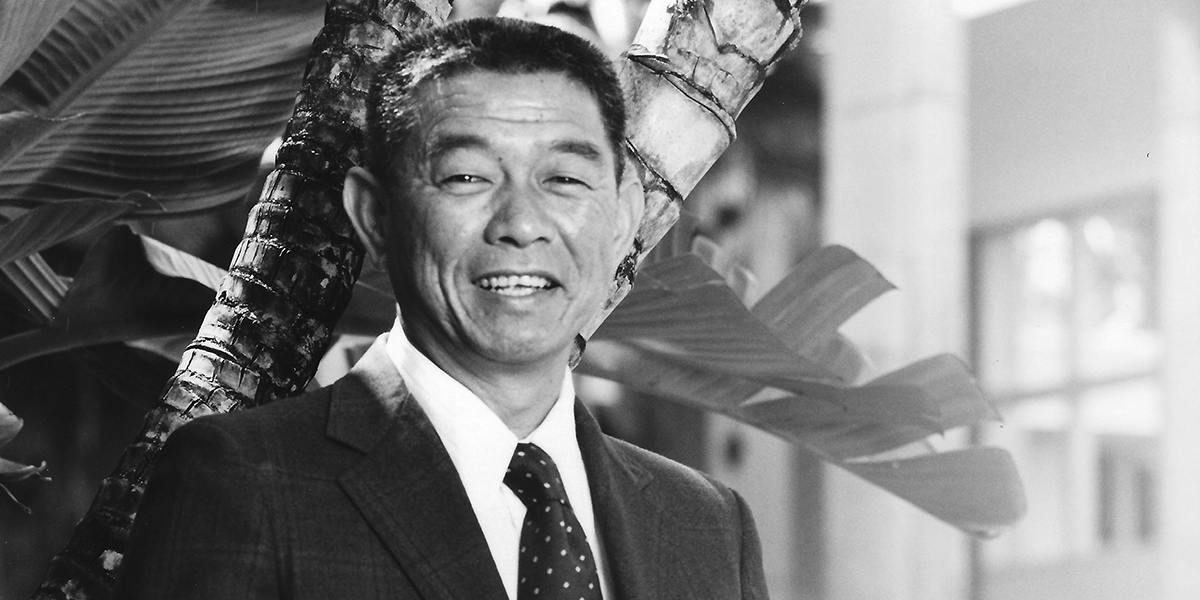Fujio Matsuda had such a curiosity for learning that well into his 90s he began studying the Hawaiian language. That passion followed Matsuda, who was known as Fudge, throughout his career as an engineer, an educator and as the first Hawai‘i-born, and first Japanese-American, president of the University of Hawaiʻi.

It's a passion that will live on through a new endowment – the Fujio and Amy Matsuda Scholarship – that will support undergraduate students from Hawai‘i pursuing a degree at any of the UH System's 10 campuses.
"His legacy is for everyone to have that, the ability to reach those goals and to satisfy their curiosity," says daughter Joanie Brotman.
Matsuda, who passed away on Aug. 23, 2020, at the age of 95, was president of the university from 1974 to 1984. He left behind his wife of 71 years, Amy; six children; 14 grandchildren and eight great-grandsons.
All roads lead to back to UH
Matsuda grew up in Kaka‘ako and attended public schools. He graduated from McKinley High School in 1942 after the U.S. had entered World War II. He attended UH for one semester before enlisting with the Army.
After the war, he returned to UH to study engineering for two years, then transferred to Rose Polytechnic Institute in Indiana, where he graduated in 1949. He earned his doctorate from MIT in 1952, then taught at the University of Illinois. He and Amy and their first three children moved back to Hawaiʻi in 1955, when Fudge returned to UH as a faculty member. He was chair of the civil engineering department in 1963 when he left UH to become director of the state Department of Transportation.
He returned to UH again in 1973 as vice president of business affairs, and the Board of Regents appointed him to the top job on July 24, 1974. During his tenure as president, the university's budget grew from $65 million to $165 million in general fund appropriations, and the UH Foundation's budget grew from $400,000 to $4.5 million. He oversaw the construction of the William S. Richardson School of Law and its library, the Korean Studies Center, Marine Sciences building, an athletic complex and swimming pool, the Institute for Astronomy, Gilmore Hall and an art building. He also initiated and oversaw the development of Kapiolani Community College at its Diamond Head site.
His wife, Amy, said he also took pride in building the faculty, which had unionized under the UH Professional Assembly just before his tenure began.
"He really vouched for the faculty," she says. "He was very supportive of them." She recalled him recruiting from the Mainland and other universities because "he wanted to get the best faculty he could for the students."
After stepping down, Matsuda became executive director of the Research Corporation of UH, a post he held until 1994.

Increasing access for students
Students are at the heart of Fudge Matsuda's legacy.
"He was always about increasing access for everyone in Hawai‘i to get an education," son Tom Matsuda says. "It was very important for him, for the university to be a place where local kids could get a liberal arts education, meaning they could be exposed to all kinds of academic disciplines.
"In other words, the university wasn't a place to go get a job, it was a place to learn about the world," says Tom. "When we set up the scholarship, that was part of the thinking."
And he meant everyone – not just young people, but anyone who wants to learn "and wants to further their education," daughter Joanie Brotman says. "After he passed, we heard stories from people who were much, much older when they went back to school and how he had helped them," says Joanie. "I was surprised – he advocated for people in their 40s, 50s, 60s who never got a degree. It's not just kids, it's anyone, which fits what he modeled for us, that you just keep learning."
Matsuda instilled that love of learning and the drive to be curious and to become more educated in his own home, as well as among all who knew him, says Joanie.
"In very simple human terms, he just wanted to give kids a chance who otherwise wouldn't have had the opportunity to get a higher education," says Tom. "If even one local student takes advantage of the Matsuda Scholarship and becomes a strong contributing member of our community to make Hawai‘i better, that would be a big legacy for us."
Updated:
Questions? / More Information
If you would like to learn how you can support UH students and programs like this, please contact us at 808 376-7800 or send us a message.
